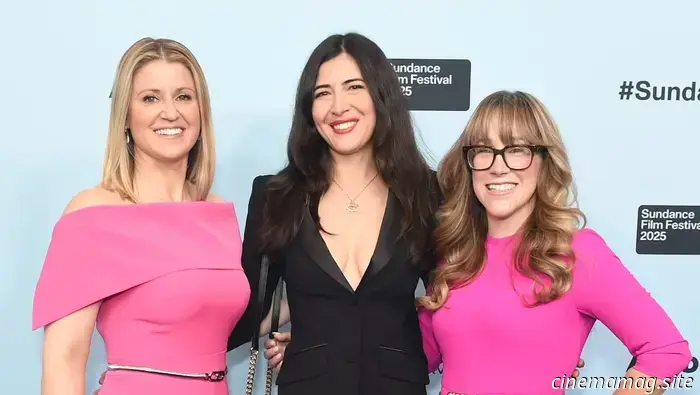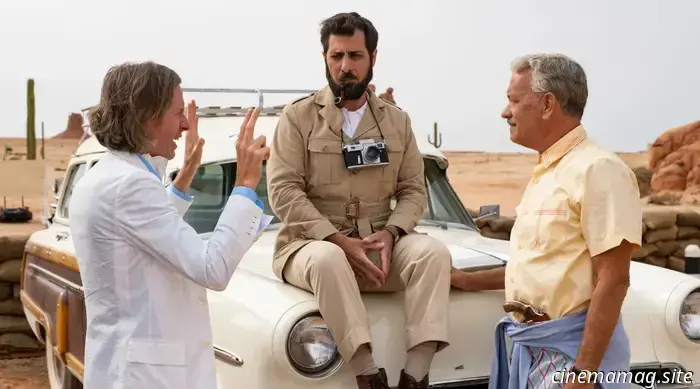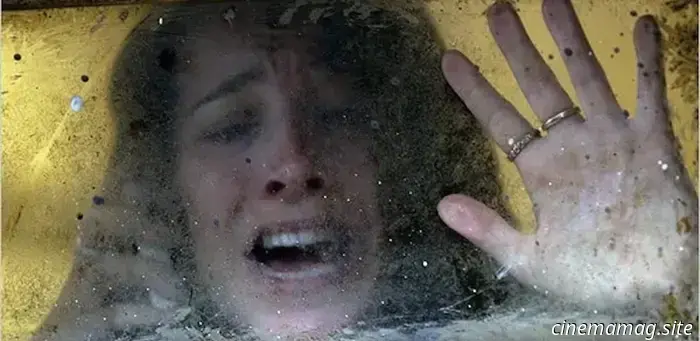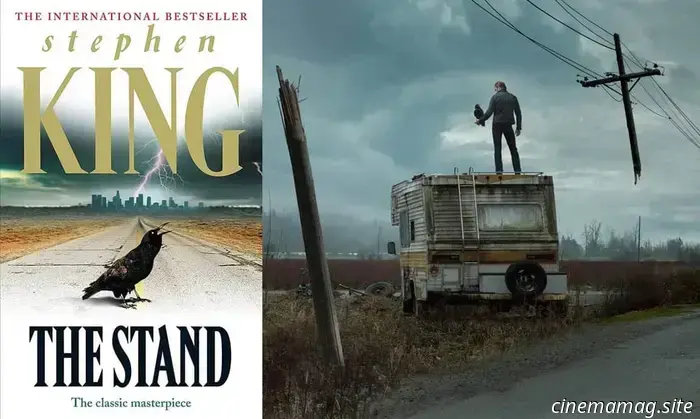
How Organizing a Film Festival Assisted Me in Gaining Entry to Sundance
As the co-founder and artistic director of the Salute Your Shorts Film Festival — and a filmmaker myself — I've spent the last nine years understanding what catches the attention of programmers and applying that knowledge to my projects.
This was evident when "Chasers," a 31-minute single-take film produced by SYSFF executive director Elle Shaw and directed by me, achieved a milestone this year by being the first narrative project accepted into both Sundance and Slamdance.
While breaking conventions can lead to achievement, I've also gained insights while narrowing down the thousands of films that apply to Salute Your Shorts to our final selection of 50 shorts.
Film Festival Trends to Avoid
Every year, peculiar trends surface in the zeitgeist — like a surge of squirrel-themed films a few years back. (We programmed one, which won our audience award.) Filmmakers often find it difficult to foresee when their “original” concept might face off against something similar. Nonetheless, being aware of trends can help you understand the competitive landscape.
My friend and fellow film festival programmer Jesse Knight (from Palm Springs International Shortfest and Seattle International Film Festival) has humorously suggested circulating a “bingo card” among festival curators to gamify our experiences with recurring themes. At the top of his list? Alzheimer’s, an actor auditioning, malevolent A.I., interpretive dance, karaoke, call centers, and a “fishperson.” (Last year, we showcased two films featuring fishpeople at SYSFF). Often, it’s less about the subject and more about how it’s executed — a character locking eyes with the camera in a concluding shot or casting Eric Roberts. (Just check his IMDb credits).
However, if you cast Eric as “Guppy” in your fourth-wall-breaking exploration of A.I.’s hazards, don’t be deterred: breaking the rules can lead to creativity. I only know about Jesse's list because it contains “single-shot-take,” and he ribbed me about it when I mentioned our single-shot film, "Chasers."
You can breathe fresh life into any trope, but filmmakers should watch numerous shorts to find innovative angles on existing ideas.
Every Film Festival Has a Different Audience
At SYSFF, our motto is “films with aftertaste.” Our audience primarily consists of filmmakers, so we choose films that advance the discussion surrounding filmmaking. While we may not have the same recognition as Sundance or SXSW, we share a profound dedication to promoting innovative, boundary-pushing films.
Sometimes, a great film may not fit our festival, but I’ll recommend it to a colleague who programs for an Oscar-qualifying festival in a retiree community known for warm hospitality. Despite its success, "Chasers" might not resonate with as many regional community festivals as my earlier film, “[subtext],” which garnered numerous audience awards and screened at over 50 festivals, many of which are featured on MovieMaker’s lists.
Filmmakers should familiarize themselves with a festival’s mission and understand its programming approach. Take the time to learn what types of films the festival supports — including specific demographics or thematic priorities.
At Salute, I program films that linger, provoke thought, and engage — films that spark conversations rather than simply providing answers.
More of This, Please
I personally yearn for more films that embrace complexity and nuance rather than conveying a predetermined message. Films that resemble public service announcements, have didactic missions, or simply recount a “sad event” hold less appeal for me. I look for films with a distinctive viewpoint, where the filmmaker grapples with personal issues, presenting conflicts and dilemmas rather than easy resolutions.
For instance, if a film addresses bullying, I'm less interested in a “bullying is bad” narrative — something that everyone already agrees on. I would prefer to see a film that delves into the social dynamics behind bullying, considers the complicity of bystanders, or even presents the bully's perspective in a way that challenges but doesn't excuse. The finest films push us, not by dictating our thoughts, but by making us feel the weight of a situation in all its complexity.
Political films attract my interest only if they contribute meaningfully to the discourse — I’m not engaged by rehashing an opinion I already agree with. I prefer films that enrich, broaden, or thoughtfully question perspectives. Films that acknowledge nuances, avoid straw-man arguments, and explore opposing viewpoints respectfully are far more compelling.
Additionally, I find form to be of greater interest than content. An “important” topic doesn’t guarantee I’ll want to program the film. I once heard filmmaker Jim Cummings discuss how to make an audience care about characters. He advised, “Assume they don’t. Make them care through skill.” A talented filmmaker can elevate the stakes of any scenario. A trope presented straightforwardly is cliché, while a trope examined with curiosity and craftsmanship becomes “revisionist,” an “homage,” or offers a “twist.”
I value



Other articles
 Suggested New Reads on Filmmaking: A Trip to Asteroid City, Women of the French New Wave, the Iconic Gandolfini, and J. Hoberman's Reflections on the '60s.
As summer arrives, it’s appropriate to start with the sunniest aspect of Wes Anderson’s work, then explore a piece from J. Hoberman, a must-read biography of James Gandolfini, and many more options to enjoy while you soak up the sun. The Wes Anderson Collection: Asteroid City by Matt Zoller Seitz (Abrams) The Wes
Suggested New Reads on Filmmaking: A Trip to Asteroid City, Women of the French New Wave, the Iconic Gandolfini, and J. Hoberman's Reflections on the '60s.
As summer arrives, it’s appropriate to start with the sunniest aspect of Wes Anderson’s work, then explore a piece from J. Hoberman, a must-read biography of James Gandolfini, and many more options to enjoy while you soak up the sun. The Wes Anderson Collection: Asteroid City by Matt Zoller Seitz (Abrams) The Wes
 5 Horror Film Remakes That Enhance the Original Versions
These remakes of horror movies accomplished what the original films did not.
5 Horror Film Remakes That Enhance the Original Versions
These remakes of horror movies accomplished what the original films did not.
 Doug Liman is set to adapt Stephen King's The Stand for Paramount Pictures.
Doug Liman is gearing up to take on the challenge of adapting Stephen King’s The Stand for the cinema. According to The Hollywood Reporter, the director known for The Edge of Tomorrow and The Bourne Identity will attempt to distill King’s legendary 1978 novel into a feature film. Although it was successfully adapted into a notable 1994 miniseries and a less well-received 2019 limited series, […]
Doug Liman is set to adapt Stephen King's The Stand for Paramount Pictures.
Doug Liman is gearing up to take on the challenge of adapting Stephen King’s The Stand for the cinema. According to The Hollywood Reporter, the director known for The Edge of Tomorrow and The Bourne Identity will attempt to distill King’s legendary 1978 novel into a feature film. Although it was successfully adapted into a notable 1994 miniseries and a less well-received 2019 limited series, […]
 Lauren Greenfield, the Social Studies Director, discusses the influence of social media on the lives of teenagers.
Social Studies director Lauren Greenfield discusses her process of creating the outstanding Hulu docuseries that explores the impact of social media on the lives of teenagers.
Lauren Greenfield, the Social Studies Director, discusses the influence of social media on the lives of teenagers.
Social Studies director Lauren Greenfield discusses her process of creating the outstanding Hulu docuseries that explores the impact of social media on the lives of teenagers.
 The initial trailer for the crime comedy Roofman featuring Channing Tatum has been released.
Paramount Pictures has released the first trailer for Roofman, a crime comedy-drama directed by Derek Cianfrance (Blue Valentine). The film tells the true story of fugitive Jeffrey Manchester, featuring Channing Tatum as the ex-Army Ranger who evaded capture for six months by secretly residing in a Toys “R” Us after robbing multiple McDonald’s restaurants. Tatum is joined by […]
The initial trailer for the crime comedy Roofman featuring Channing Tatum has been released.
Paramount Pictures has released the first trailer for Roofman, a crime comedy-drama directed by Derek Cianfrance (Blue Valentine). The film tells the true story of fugitive Jeffrey Manchester, featuring Channing Tatum as the ex-Army Ranger who evaded capture for six months by secretly residing in a Toys “R” Us after robbing multiple McDonald’s restaurants. Tatum is joined by […]
 In the trailer for Ron Howard's "Eden," Jude Law, Ana de Armas, Vanessa Kirby, and Sydney Sweeney encounter challenges in their idyllic setting.
Vertical has unveiled the trailer for Ron Howard's survival thriller, Eden, featuring a cast of well-known actors stranded on a secluded island, where they soon realize that the picturesque setting reveals their darker sides. Inspired by real events, Eden's impressive lineup includes Jude Law (Star Wars: Skeleton Crew), Ana de […]
In the trailer for Ron Howard's "Eden," Jude Law, Ana de Armas, Vanessa Kirby, and Sydney Sweeney encounter challenges in their idyllic setting.
Vertical has unveiled the trailer for Ron Howard's survival thriller, Eden, featuring a cast of well-known actors stranded on a secluded island, where they soon realize that the picturesque setting reveals their darker sides. Inspired by real events, Eden's impressive lineup includes Jude Law (Star Wars: Skeleton Crew), Ana de […]
How Organizing a Film Festival Assisted Me in Gaining Entry to Sundance
As the co-founder and artistic director of the Salute Your Shorts Film Festival, as well as being a filmmaker, I have dedicated the last nine years to understanding precisely.
